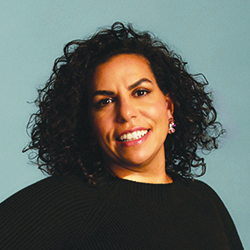As the Western holiday season draws to a close for many, it marks the beginning of a significant period for others, particularly Muslim students. In the upcoming months, various important celebrations and observances are on the horizon. Acknowledging the profound impact of inclusivity in recognizing and supporting religious observances for all students, this piece aims to provide insightful information about these upcoming celebrations.
Islam is a monotheistic religion. Followers abide by the teachings of the Quran and knowledge from the Prophet Muhammad (peace be upon him). There are five pillars: fasting, praying five times a day, paying charity, pilgrimage to Mecca (Hajj), and the belief in one God and his Messenger. Many Muslim women choose to wear a head covering known as hijab; this modest attire symbolizes empowerment for women and adherence to religious values.
Ramadan and the Eids
Ramadan is the ninth month of the Islamic lunar calendar and holds significant importance for Muslims worldwide. It is a month of fasting, prayer, reflection and community. Muslims (who are able) fast from dawn to sunset, abstaining from food, drink and sinful behaviour. Beyond the physical challenge, fasting is a spiritual journey intended to cultivate self-discipline, gratitude, empathy and a deeper religious connection.
During Ramadan, Muslims engage in heightened spiritual practices, including additional prayers (Taraweeh), increased recitation of the Quran, supplication and seeking forgiveness. This month-long commitment demonstrates a profound dedication to faith and is not limited to this specific period, as Muslims may fast throughout the year on auspicious or meritorious days.
Muslims celebrate two Eids: Eid al-Fitr (Festival of Breaking the Fast) marks the end of Ramadan, while Eid al-Adha (Festival of Sacrifice) commemorates the story of the Prophet Ibrahim and his son Ismail. Eid al-Adha involves a symbolic sacrifice of a lamb, with a portion of the meat donated to those in need. These joyous celebrations bring together family and friends, with Muslims engaging in special prayers, visiting family, giving charity and enjoying festive meals.
Here are some practical tips for creating an inclusive environment for Muslim students and raising awareness of these important events.
Raise awareness and provide education
Promote awareness and understanding within the school community. Consider reading books about these special days, organizing information sessions, or inviting guest speakers to share about these traditions and their significance. This can help dispel misconceptions and foster a more inclusive atmosphere.
Accommodations
Recognize that fasting during Ramadan can be physically demanding. Observers wake up before sunrise and may be praying a special prayer that extends into the night (Taraweeh). Be flexible and considerate by providing options for students who may need to take a break or find a quiet space for reflection during lunchtime. Encourage teachers to be understanding and supportive, allowing students to manage their energy levels effectively.
Scheduling
Be mindful of timing exams, assignments and physically demanding activities during Ramadan. If possible, schedule these activities in the morning as students may experience a decline in energy levels and concentration in the afternoon. Alternative timings or formats can also be considered.
Create inclusive celebrations
Acknowledge the importance of these dates by incorporating celebratory events within the school community. This could involve organizing events, decorations, or presentations that showcase the diversity of religious observances and foster a sense of unity. Honoring diversity in education involves ensuring that students see themselves represented while also offering opportunities for others to learn about varied backgrounds and perspectives.
Communication
Encourage open dialogue between educators, students and parents. Create a supportive environment where students feel comfortable discussing their religious practices or accommodations needed. This helps build understanding and empathy within the school community.
Greetings
In observance of Ramadan, it is customary to extend warm wishes by saying Ramadan Mubarak, Ramadan Kareem or Happy Ramadan. Similarly, when celebrating Eid, it is customary to offer greetings such as Eid Mubarak, Eid Saeed or Happy Eid.
Respect religious observances
Be respectful of students who attend special prayers or celebrations during school hours. Consider allowing excused absences for religious observances and provide a supportive atmosphere that acknowledges and respects diverse religious practices.
Inclusive materials
Ensure that educational materials, including textbooks and resources, reflect a diverse range of cultures and religions. This promotes a more inclusive learning environment and helps all students feel represented and valued.
Beyond being an ethical responsibility, supporting students in this way provides an opportunity to foster a more inclusive and understanding educational community. By raising awareness, educating and implementing practical accommodations, teachers and school leaders contribute to a positive and supportive environment that respects diversity and ensures that students of all backgrounds feel acknowledged, accepted and valued.
2024 Dates
Ramadan March 10
Eid al-Fitr April 9 or 10
Eid al-Adha June 17
These dates shift yearly based on the Islamic calendar
A former member of the ATA’s Diversity, Equity and Human Rights Committee, Youssra Badr currently serves on the Teacher Education and Certification Committee.

Special to the ATA News


